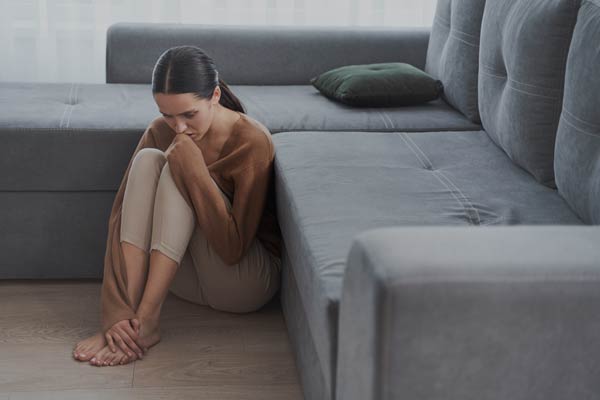Anxiety is the body’s natural response to stress and is a feeling of apprehension or fear over what is to come ahead. This could be a thing like the first day at a new job or even public speaking. Essentially anything that illicit feeling of fear and nervousness create feelings of anxiety. For most people, anxiety is something that you feel every day and you can get through and move on with the rest of your day without thinking about it much more after that. When it comes to stress and anxiety in the life of a person trying to stay sober from drugs and/or alcohol, it can mean the difference between staying sober another day or relapsing on their drug of choice. For many people, anxiety and addiction relapse can be connected because stress and anxiety to increase a person’s likelihood of relapse. Anxiety from stressful situations can be very challenging because it can act as a trigger for relapse. This typically happens for those who used a substance in an attempt to quiet their anxiety when they were using.
Anxiety Can Lead to a Relapse
Anxiety during recovery does not automatically mean you will be lead to relapse. Everyone experiencing situations that cause anxiety in everyday life, but prolonged stress and anxiety can set the stage for relapse into drinking or drug use. Relapse itself is usually more of a process rather than a singular event. Relapse tends to occur in three different stages. The first is an emotional relapse. In this stage, a person will tend to be very angry, defensive, and isolated. They may start to go back to old habits and begin to act out. The next stage is a mental relapse. In this stage, they will not have a good sense of self-awareness meaning they cannot separate emotional health from mental health. They will not be able to see what is causing them to act out or go back to old behaviors. They will also start to have drug cravings, start planning a relapse, and justifying the consequences of doing so. The last stage is a physical relapse and this is where they will return to drug use. The person may think they have the chance to get away by resorting to relapse. This short-sighted thinking only makes the situation worse, leading back to active addiction, more anxiety, and more misery.
Overcoming Anxiety and Addiction
There are different things that you can do to prevent a relapse. The best way is to talk with a therapist to combat the anxiety you feel and combat any relapse warning signs. You can also do other things to reduce stress and anxiety such as:
- Eating healthy meals. Sugary foods do make people more anxious and jittery.
- Stay physically active and exercise regularly. This could be going to a gym, playing a sport, or doing a physical activity that brings you joy.
- Practice mindfulness and meditation. These are great ways to calm your nerves and your mind. It allows you to be in the moment and not worry about what is to come next.
- Use deep breathing and practice grounding exercises.
Treatment for Co-occurring Disorders
Anxiety can spiral very quickly and sometimes you will not even see it happening. It can lead to a relapse if you are not careful. Getting a good understanding of what makes you anxious and how to combat it is very important for remaining sober. You have to protect and better yourself to be successful in recovery. Deciding to get sober and stay that way requires more than just taking away the drugs and alcohol. There are no downsides to understanding. By utilizing different coping mechanisms; you are setting yourself up for long-term success. Why not do everything you can do to be successful?




